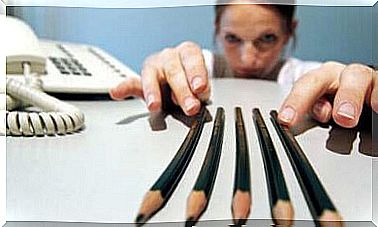What Are Bad Manners And Bad Manners?

Bad manners and bad manners are ageless. It is not a question of children or adolescents, going through this often reactionary and problematic stage. In our day to day we can see inappropriate reactions and unethical behaviors in experienced people, in men and women who, with their bad habits, make living together very complicated.
For what is this? Why does this lack of civility fail? When we perceive this lack of social norms in our children, it is common to blame parents and even, why not, a school that sometimes fails, and that according to many is deficient and does not always succeed in its cultural, educational and disciplinary mission. Maybe it’s true or maybe not; however, if we want to be accurate and fair, we have to go further.
When bad education takes a presence in our social and work settings, those inhabited by adults, we continue to wonder why it happens. Thus, if we address this issue, it is due to a very specific fact, and it is the impact that bad manners can have on us. An example, in a survey carried out in the French population a few years ago they were asked what was the thing that caused them the most stress.
Right behind unemployment was people’s behavior. Factors such as rudeness, lack of civility, lack of respect or uncivil habits in work environments were one of those elements that generated the greatest stress and anxiety in the French population. In this way, bad education worries and is a source of contamination for coexistence.

Bad manners: loss of civility
Yelling to speak, meddling in other people’s lives, interrupting conversations, laughing at others, humiliating, not respecting furniture, not giving thanks or even paying more attention to mobiles than to the people in front of them … We could give a thousand examples of that habitual rudeness and those who are hard to get used to.
It should be noted that we do not have data to know if these antisocial behaviors are more frequent than a few years ago, but what is evident is that they leave sequels. Somehow, we are forgetting something important. Good manners and forms are not an anachronism or a social invention inherited from the 18th century, that time that Octavio Paz called the last civilized century.
Good education actually builds a respectful coexistence framework. Thanks to good manners, we create scenarios where that value, respect, commands. Thus, elements such as correct treatment, recognition of the other and that daily effort to facilitate coexistence, lay the foundations of civility.
Bad manners and rudeness hurt
This fact is undoubtedly as curious as it is true. Bad manners, bad manners, and rudeness create what is known as social pain. It was the psychologist Naomi Eisenberg, from the University of California, who carried out a study to analyze the impact of these dimensions. These types of behaviors were found to have an impact at the brain level.
Not only do they make coexistence difficult, but they also hurt, cause stress and break that social principle that is respect, and that our brain interprets as meaningful to feel good, calm and harmonious.

Why are there people with bad manners and rudeness?
Adolf Knigge, an 18th century writer, wrote a well-known book entitled On How to Treat People. Far from being a moralistic and sweetened work, it stands, according to current philosophers and psychologists, as a whole manual of urbanism and behavioral beauty that could serve as inspiration.
Because what feeds rudeness today? Why do we see it in some of our children and especially in the adult population? These would be some factors that would explain it.
- Personality profiles with narcissistic patterns. They are people with a lack of empathy who do not usually respect the limits of others.
- Often, people accustomed to exercising power (managers, senior business positions, etc.) tend to overlook their manners and respect for others.
- Antisocial personality (or antisocial personality disorder) would be another example of this behavior but often taken to the extreme. In this case, the violation of the rights of other people is common.
- On the other hand, the educational factor is often raised as that key trigger in bad manners. A parenting based on disorganized attachment, the lack of basic norms, the lack of limits or even a deficient family environment, establishes that challenging behavior where manners, respect and education fail.
- Bad education in childhood and adolescence ends up in adulthood. This means that we have adults with zero resistance to frustration, with serious difficulties in adjusting to the rules and also accustomed to disrespecting others.
conclusion
Pythagoras used to say that if we teach children correctly and effectively, we will not need to punish adults tomorrow. This phrase contains a great truth, since everything that is established in childhood forms the basis for the rest of life.
Bad education impoverishes our society. Elements such as good manners, respect for others, civility, correctness or social empathy, are not anachronistic elements. They are ways of structuring the way we relate and coexist. Let us therefore take care of this valuable aspect.









